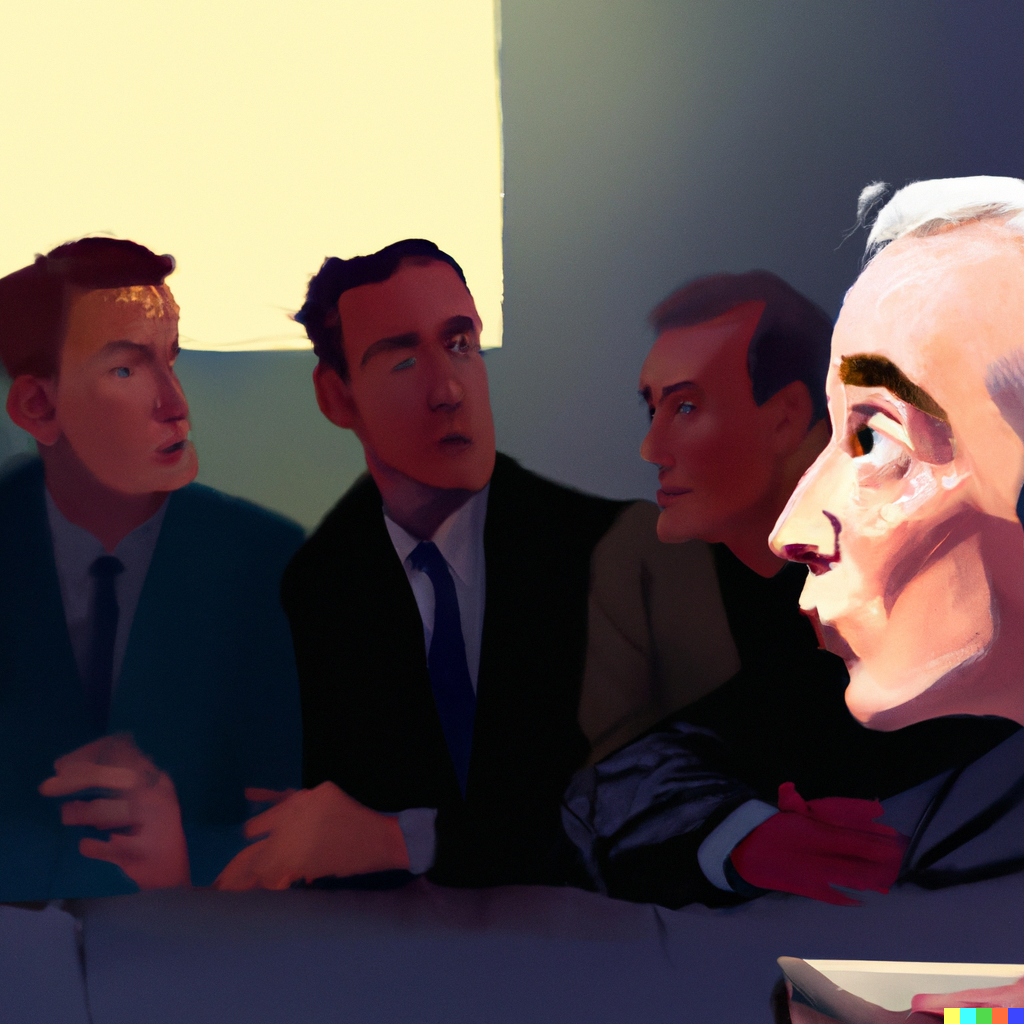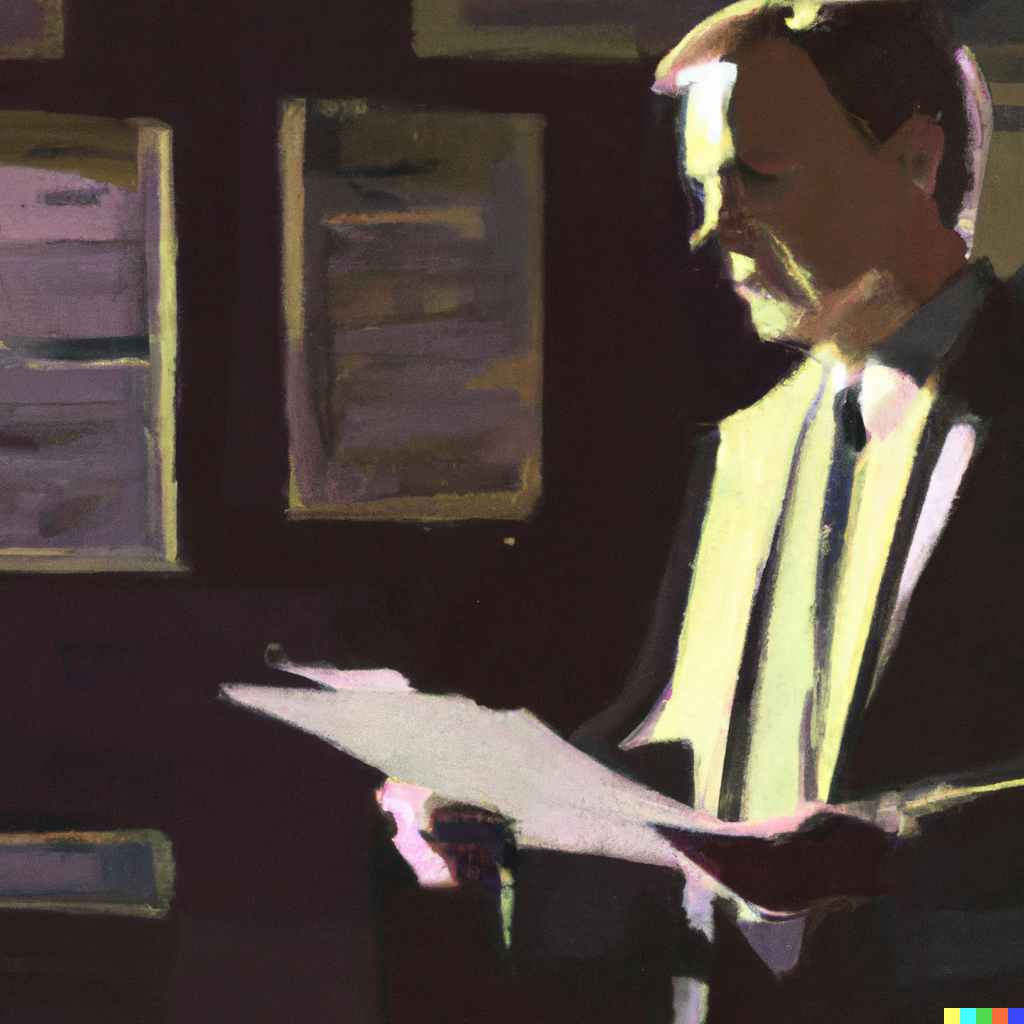In a world where everyone is vying for attention, Benjamin Whittaker discovers an unconventional approach to leadership that turns the tables on traditional management styles. Follow Ben as he embraces the power of silence.
Benjamin Whittaker, affectionately known as Ben, lived in an office building not too far from here. He was an adept and industrious leader, ceaselessly exploring new strategies to augment his influence and garner the esteem of his colleagues.
One fateful evening, as Ben meandered through the self-help section of a quaint, local bookstore, he stumbled upon a modest, unpretentious tome entitled “The Art of Silent Command: How to Convey Power and Importance Through Quiet Speech.” Intrigued by the promise of its contents, he promptly purchased the book and voraciously consumed its wisdom that very night.
The book asserted that by adopting a soft and gentle tone, an individual could effortlessly command attention and compel others to lean in and listen more intently. The notion was that by doing so, the speaker would exude an aura of importance and garner unwavering respect.

Energized to implement this newfound advice, Ben arrived at the subsequent staff meeting armed with his freshly acquired technique. As he initiated his speech, he deliberately lowered his voice to a near-whisper, obliging his team to strain their ears and hang on his every word.
“Good morning, team,” Ben whispered, his voice barely audible above the hum of the air conditioner. “Today, we’re going to discuss our strategy for the upcoming quarter.”
At first, his employees were puzzled by Ben’s sudden change in volume. They exchanged glances, wondering if he had lost his voice or was trying to be discreet about some confidential matter. But as the meeting wore on, it became apparent that Ben was whispering intentionally.
In the following weeks, Ben continued to speak in hushed tones during meetings, presentations, and even casual conversations. His staff, perplexed by his new communication style, began to call him “Whispering Ben” behind his back.
Though they found his whispering habit odd, Ben’s team couldn’t deny that it did make his words feel more significant. They found themselves hanging on his every word, eager to uncover the hidden wisdom that must surely lurk within such carefully guarded speech.

However, as Ben’s whispering grew more pronounced, it began to hinder communication within the office. Employees complained of headaches from straining to hear him, and crucial instructions were lost amidst the office’s ambient noise. Even the receptionist had taken to repeating Ben’s whispers into the telephone, so callers could understand his directives.
One day, during an especially high-stakes budget meeting, Ben’s muted delivery pushed his staff to their limits. As he whispered the latest financial figures, his assistant, Julia, finally reached her breaking point.
“Ben, for goodness’ sake, can you please speak up?” she burst out, her vexation palpable. “We can’t understand a word you’re saying!”
The room fell into a hush as everyone anxiously awaited Ben’s response. To their amazement, he simply smiled and cleared his throat.
“I apologize, everyone,” he said in his normal speaking voice. “I’ve been experimenting with a new communication technique, but it appears that it’s causing more issues than it’s resolving.”
Over the subsequent weeks, coming to terms with the mixed results of his whispered communication method, Ben resolved to take it a step further. He began to restrict his daily comments to a mere five or six words, and then, in a daring move, he elected to go almost entirely silent.
To the utter astonishment of everyone in the office, the company’s performance began to improve. Projects were completed ahead of schedule, employee morale skyrocketed, and creativity flourished. And when Ben finally went completely silent, the company’s sales exploded, breaking all previous records.

The office buzzed with excitement, and Ben’s team marveled at their director’s silent wisdom. They attributed the company’s newfound success to his profound, unspoken guidance. Little did they know, it was Ben’s very silence that had sparked a revolution within the team.
Without Ben’s constant input, his employees found themselves forced to think independently and collaborate more effectively. They became self-sufficient, resourceful, and innovative, no longer relying on their director for direction.
As Ben observed the company flourish under his nearly mute leadership, he couldn’t help but marvel at the unanticipated outcome of his experiment. The irony was not lost on him: his endeavor to command attention and respect had backfired, but in doing so, it had emboldened his team and fostered unity among them.
Riding the crest of success, Ben persisted in leading his team in hushed grandeur. And while he was celebrated as an innovator for his unconventional management style, he understood that the true strength lay in the untapped potential of his team, unleashed by the simple act of him holding his tongue.
Thus, the legend of the “Silent Director” came into being, and murmurs of Ben’s atypical leadership style circulated throughout the industry. But as his team reveled in their newfound self-reliance, Ben felt a surge of pride, realizing that his silence had granted them the liberty to discover and utilize their own voices.

All images were generated using DALL.E 2 (Open AI)
